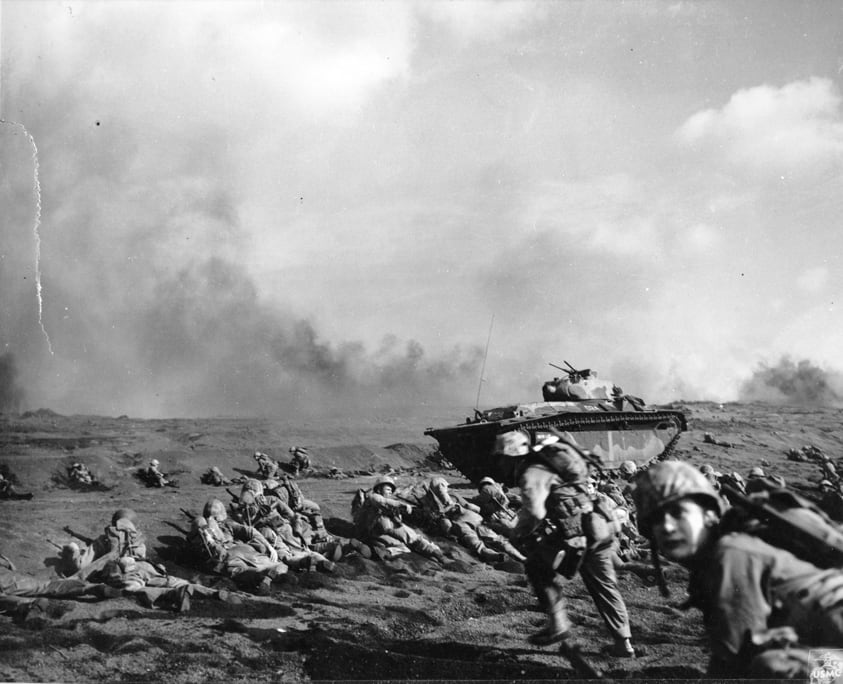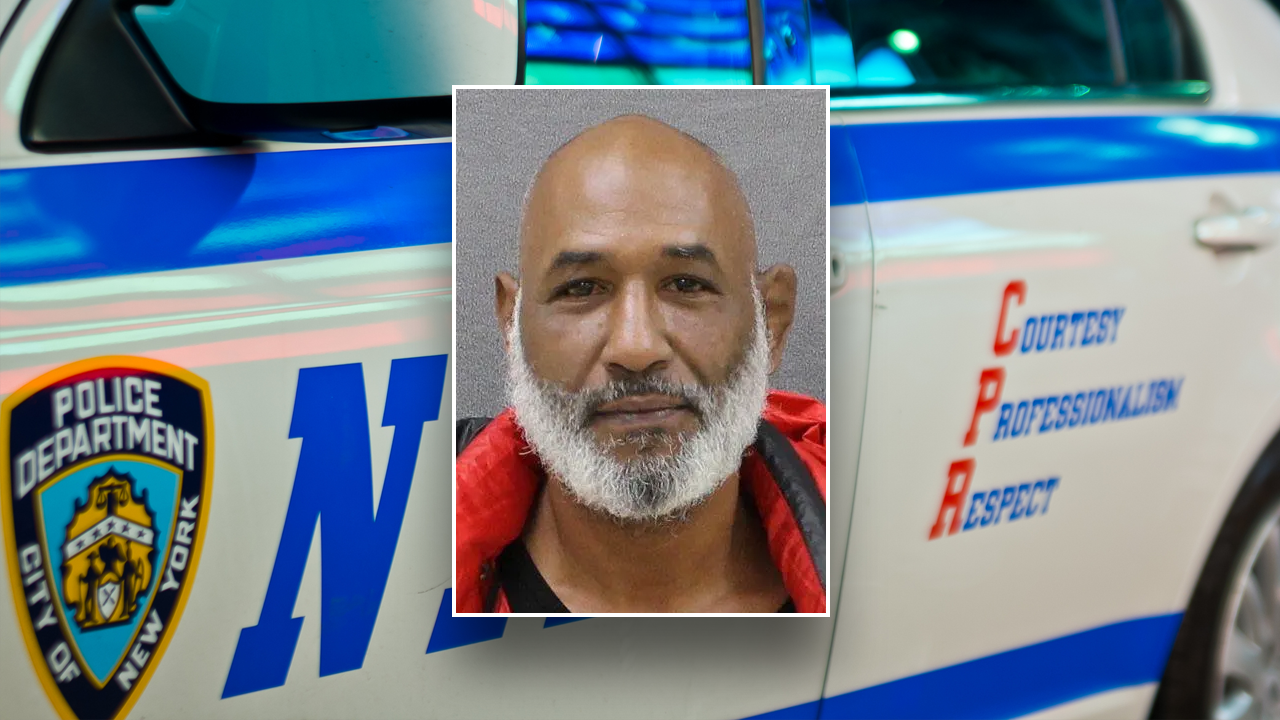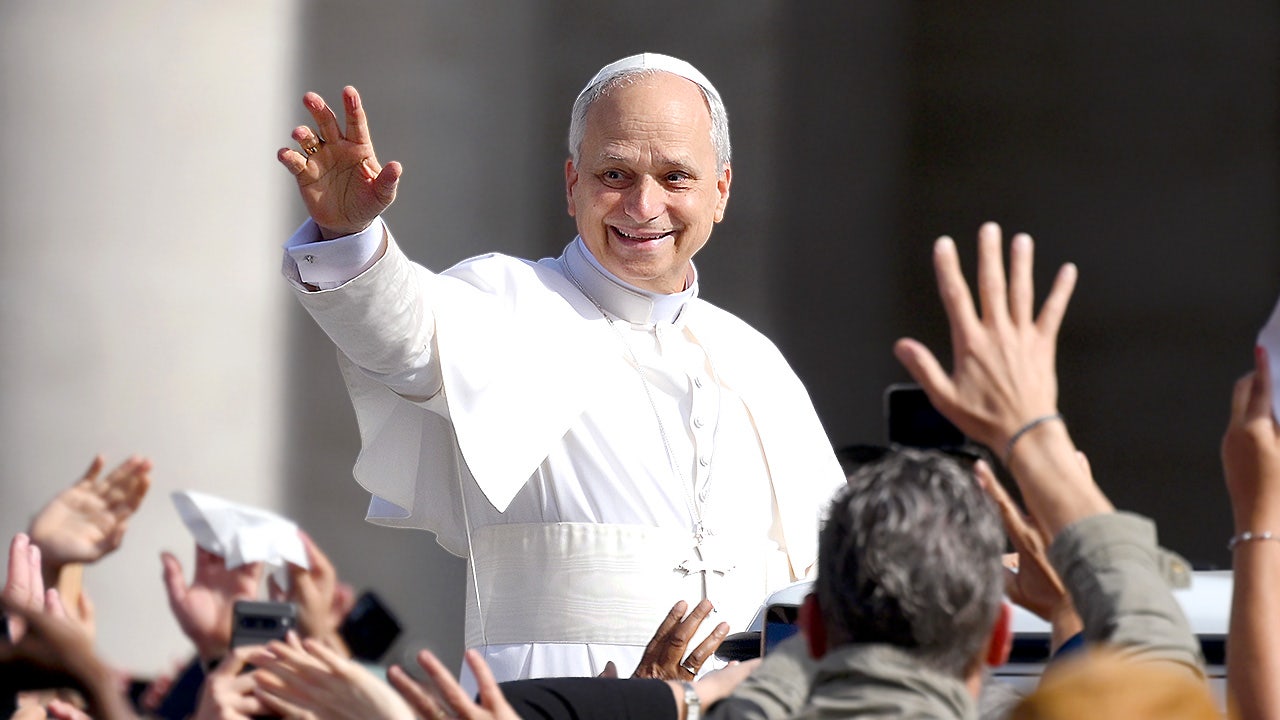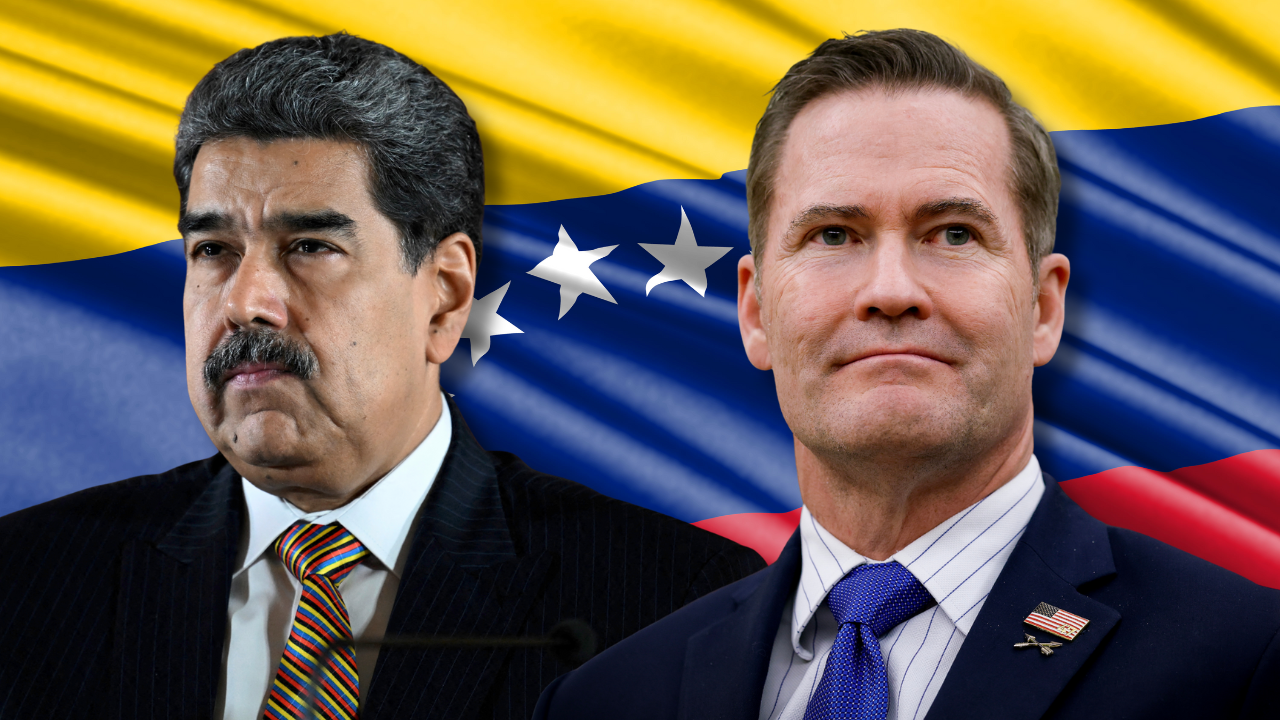Meet the youngest Medal of Honor recipient since the Civil War

On Oct. 5, 1945, President Harry S. Truman placed the Medal of Honor around Jacklyn Harrell Lucas’ neck. According to Lucas, Truman told the Marine, “I’d rather have [your] medal than be president of the United States.”
“Sir, I’ll swap you,” quipped Lucas.
But the ceremony to honor the Marine with the nation’s highest medal for valor was unique in more ways than one. At the age of just 14, the teen had forged his mother’s signature to join the Marine Corps. By the age of 17, Lucas had stowed away aboard the USS Deuel, bound for Iwo Jima.
It was there that he would become the youngest Medal of Honor recipient since the Civil War.
Born on Feb. 14, 1928, the North Carolina native recalled that after his father died when he was 11 years old, Lucas became “kind of a tough kid after that to handle.” Sent to military school, Lucas was there when he got word about the attack on Pearl Harbor.
“That very day a cold chill ran down my spine,” said Lucas. “I just became obsessed that I had to do something.”
Lying about his age, the 8th grade graduate enlisted in the Marine Corps Reserve and was sent to Parris Island for training. Assigned to posts in Florida and North Carolina, Lucas qualified as a heavy machine gunner and by late 1943 joined the Fifth Amphibious Corps at Pearl Harbor.
By early 1944, however, his true age was discovered. Rather than getting kicked out of the Corps, Lucas was kept in rear area duties for nearly a year.
This wasn’t good enough for the young Marine who was itching to be in combat.
In early January, determined to join the war effort, Lucas had stowed away on the attack transport Deuel headed for Iwo Jima.

“I didn’t even know where the ships were headed,” recalled Lucas. “I had never heard of Iwo Jima in my lifetime. I knew I was on the way to war — and that’s what I wanted. That was my obsession.”
After hiding aboard the ship for a month, Lucas turned himself in. Lucas was declared a deserter and reduced to the rank of private, but despite this, he was still allowed to join the Fifth Marine Division en route to the Japanese-held island.
Although only a little over 4 miles long, Iwo Jima was key to Gen. Curtis Lemay’s bomber offensive on Japan’s home islands and on Feb. 19, 1945, 30,000 Marines and soldiers were met by 21,000 Japanese soldiers and a dizzying network of caves, tunnels and concrete pillboxes that a determined enemy used to deadly effect.
Among those men was Lucas, who had turned 17 just five days prior.
On the second day of battle, Lucas, a rifleman with the 1st Battalion, 26th Marines, 5th Marine Division, was attached to a four-man fireteam. As they crept “through a treacherous, twisting ravine which ran in close proximity to a fluid and uncertain front line,” the Marines took cover, jumping into a trench to avoid incoming direct fire.
“The group leader that I was with, he jumps over in the other trench and immediately jumps back because he had jumped on the back of [an enemy soldier],” said Lucas.
“Well, all hell broke loose then.”
Facing a fusillade, Lucas’ rifle unluckily jammed. This, however, allowed him to notice two grenades that had be lobbed over by the Japanese.
“How long had they been down there? Two seconds? I didn’t know,” recalled Lucas. “If my rifle had not jammed it would have probably wounded all of us … and then [the enemy soldiers] we were supposed to be killing in front of us would have finished us off.”

According to Lucas’ citation, “Lucas unhesitatingly hurled himself over his comrades upon one grenade and pulled the other under him, absorbing the whole blasting forces of the explosions in his own body in order to shield his companions from the concussion and murderous flying fragments.”
Thrown in the air, Lucas’ body was riddled with over 250 pieces of blazing hot, razor-sharp shrapnel. Lucas remained conscious throughout the whole ordeal, but was unable to make a sound to indicate to his unit that he was still alive.
Believed to be dead by his comrades, the three other Marines left the trench to continue their assault on the enemy.
Fortuitously for Lucas, another Marine passed by the grievously wounded teen and quickly called for a corpsman.
As Navy personnel rendered aid to Lucas, a lurking Japanese soldier attempted to hurl a grenade at the pair. Looking up, the corpsman managed to quickly shoot and kill the enemy soldier, allowing stretcher bearers to haul Lucas to the beachhead for evacuation to a hospital ship.
“There,” according to the National World War II Museum, “he underwent the first of a series of 26 operations to remove some of the shrapnel from his torso, arm and face.”
Prolonged physical therapy allowed Lucas to eventually regain the use of his arm but he was discharged from the Marine Corps that September due to his combat injuries.
“Of course I had to go home and see my galfriend and get some lip sugar, but Mr. Truman called me and interrupted my plans there,” joked the Marine.
Lucas was presented with the Medal of Honor by Truman on Oct. 5, 1945 — the mark of desertion removed from his service record.

In the postwar years Lucas became a businessman before joining the Army in 1961 to train as a paratrooper. During one of his training jumps, both of his parachutes malfunctioned, failing to open. Yet once again he survived, crediting his stocky build and a last-minute roll for saving his life.
Lucas once again escaped death in a 1977 murder-for-hire plot by his then-second wife, an account he details in his memoir “Indestructible.”
Lucas died of leukemia on June 5, 2008, in Hattiesburg, Mississippi. He was 80 years old.
Claire Barrett is the Strategic Operations Editor for Sightline Media and a World War II researcher with an unparalleled affinity for Sir Winston Churchill and Michigan football.
Read the full article here









